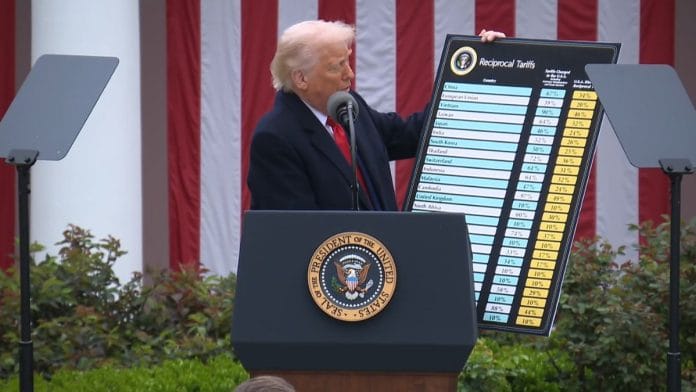In contemporary times, one cannot be called a respectable economist if one is not a free trade purist. Out comes David Ricardo and, of course, Adam Smith and then the reference to the disaster of Smoot-Hawley Act. Anything could be used to discredit economists or policies that question the ‘benefits’ of unregulated free trade. For the record, I have long been a supporter of free trade, having taught courses on globalisation at IIM Ahmedabad and IIT Bombay. But supporting a position does not mean that we abandon nuances. Yet, this is what has happened to all ‘respectable’ economists aka free trade purists.
In the very first chapter on international trade, it was drilled into students that tariffs were bad. They caused welfare losses. While that is true, we have all chosen to forget the second chapter, where an analysis of welfare losses after separating those incurred by producers and consumers showed some gains for a few sections, including greedy governments.
No one disputed that there was a net deadweight welfare loss in the overall system. In Chapter III, an attempt was made to examine the differences between a large country and a small trading partner. Students’ attention was drawn to the case of Portugal and Britain; today, a relevant parallel would be Bangladesh and the United States. We were then asked to consider the elasticity of demand in the large importing country and the elasticity of supply in the small exporting country. That distinction made all the difference in terms of relative welfare gains.
Elasticities matter
In the 1980s, the US imposed a consumption tax on gasoline, not even a tariff. Now the demand curve for gasoline is highly elastic. Unfortunately, for oil producers, the supply curve was horribly inelastic. What happened? Oil prices fell and the net welfare gains for US consumers exceeded substantially, notwithstanding the trivial consumption tax. Demand and supply are not fixed quantities. They react to prices. Elasticities matter.
Despite theories of comparative advantage, where theoretically Portugal could have made steam engines, the fact is that the small country had only one possible significant export: port wine. They produced little else that had demand in other countries. The demand curve in Britain for port wine was tricky. There were substitutes. Local apple cider, while by no means as good as port wine, could take up some slack if port got too expensive. There were also wines from other countries that could hurt the expensive port wine.
To cut a long story short, if Britain imposed tariffs on Portuguese goods, the welfare loss of the Portuguese producers of port wine would far exceed the welfare loss of British consumers. Now think of Bangladesh. With due respect to that country, they are not in a position to export airplanes or hypersonic missiles. They have stuck to garments, where the US actually gave them a preferential break for many years. When the US taxes Bangladeshi garments, the bulk of the welfare losses is doubtlessly borne by Bangladeshi producers. Americans might even decide to give up on T-shirts altogether if the new fashion pundits decide that they are bad. One never knows. In any event, their welfare losses will be significantly lower.
Also read: Trump’s ‘Liberation Day’ tariffs are tone deaf theatrics. India must weather the storm
‘Tariff madness’
Without articulating it in the manner of Chapters II and III, the present US administration may have figured out that as a large country buyer with elastic demand curves confronted by small country sellers with inelastic supply curves, they are doing pretty well.
Hence, tariffs, despite their net welfare loss, may not be such a bad thing. Bangladesh might learn from the Portuguese of yesteryear. Portugal became an ally of Britain. In fact, it is Britain’s oldest ally. The British promptly lowered tariffs on Portuguese port wine and imposed tariffs on wines from other countries, who were not allies. As a result, over 200 years, Britain became a nation of port-drinkers. If Bangladesh were to give away an island or two, especially if the islands are sparsely inhabited, they might end up becoming the preferred T-shirt sellers in American stores and digital marketplaces. Imagine what all that would achieve in 200 years!
In other economics courses, we have been repeatedly warned about evil monopolistic producers. I do not recollect much coverage of monopsonistic buyers. But then, if you are a large country and you are running a trillion-dollar trade deficit, it stands to reason that you are the monopsonistic buyer for most of the world’s producers who almost by default can be classified as small countries.
It is not this writer’s case that free trade is not good or that tariffs do not have a net negative welfare impact. One is just making the point that the self-styled economic pundits who accuse the US of madness, may be getting carried away themselves. There may after all be a method in what many instinctively and perhaps wrongly condemn something as madness.
Jaithirth ‘Jerry’ Rao is a retired entrepreneur who lives in Lonavala. He has published three books: ‘Notes from an Indian Conservative’, ‘The Indian Conservative’, and ‘Economist Gandhi’. Views are personal.
(Edited by Aamaan Alam Khan)






